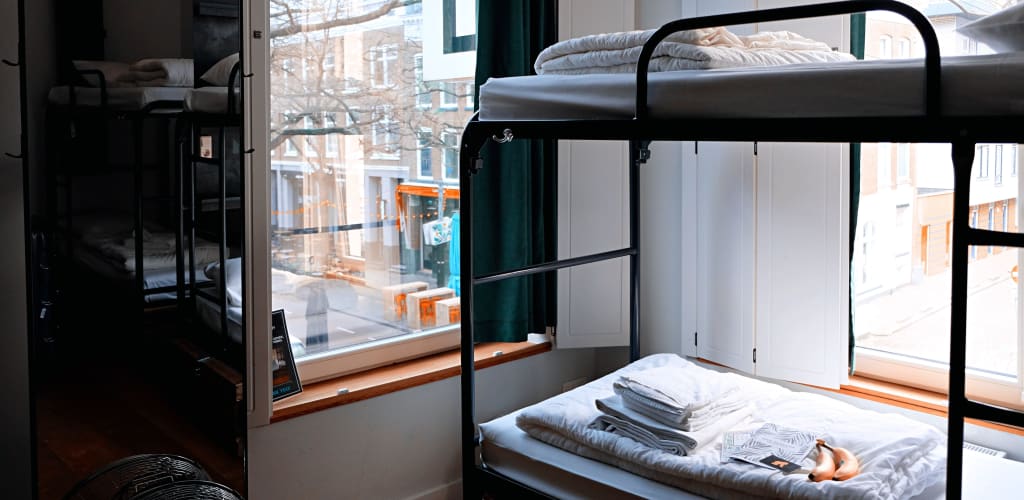
Consider purchasing travel health insurance. There are several types of travel health insurance and their benefits and exclusions. You can read on to find out the best type and price of your health insurance. Then, you can take advantage of the various discounts offered on insurance. This is not an easy choice. Although the costs can be high, it is worth the effort to prevent financial ruin in the event of a medical emergency.
Travel insurance coverage requirements
You may be curious as to what your policy covers if you travel abroad. It's important to fully understand your policy, as well as whether it will be covered by your existing health insurance plan. Certain conditions or diseases are not covered by insurance policies. For example, COVID-19 is an ongoing pandemic that has been ravaging Africa. Secondary health insurance may be able to fill the gap in these situations. Calling your current insurance provider is the best way to find out your coverage requirements. Your insurance company can tell you if your current policy will cover COVID-19 abroad.
Medicare won't cover international medical costs. If you are traveling internationally, you should consider getting a travel health insurance policy that covers emergency medical treatment. While most health insurance plans don't cover these types of costs, Medicare does not cover medical costs outside the U.S. A travel insurance plan is recommended for anyone who has to be covered in an emergency situation abroad. These policies can be referred to as International Medical Insurance or WMI.

Different types of insurance
There are two main types of travel medical insurance: long-term and major. The former covers medical emergency while traveling such as a fractured leg or a visit to an emergency room. A major health policy covers long distance travel and may include international language services or medical evacuation. Each type has its advantages and disadvantages. It all depends on what your travel plans are.
Traditional health insurance is often limited in its scope. You can travel with your health insurance to cover any medical expenses. This type of policy is a good choice for trips to less developed countries with high medical costs. It is important to investigate all available plans before making a purchase. For peace of mind, the cost of a policy may be worth it. Learn more about the cost.
Exclusions
Americans should contact their medical insurer before going abroad to see what coverage is available. You should be aware that not all plans will cover overseas medical expenses. However, there are certain exceptions to this rule. You may be eligible for coverage in Canada and Europe if your insurance covers you in the United States. However, some plans have a pre-approval requirement before covering medical expenses abroad. Medicare and Medicaid policies typically do not cover international medical costs.
Self-inflicted injuries are the most common reason for insurance to not cover you. These exclude any hospitalization or treatment related to a suicide attempt. However, these are not the only reasons to look for health insurance coverage before traveling. Some people are worried they won't have coverage for overseas medical expenses. There are many ways to reduce these risks and still receive the coverage you require.

Benefits
Health insurance is a great option for travelers who travel internationally. Without this coverage, you may have to pay for medical care abroad out of pocket. You can then file a claim once you get back home. However, you can now get insurance that covers you while you're traveling. GeoBlue, a travel insurance program offered by Blue Cross Blue Shield, can provide you with the protection you need to live abroad and not worry about your medical bills.
Travel insurance policies can be used to cover unexpected medical expenses. If you have a U.S.-based health plan, you might not have coverage abroad, and Medicare is not accepted there, so you'll need to purchase a separate policy for your trip. Even if your existing health plan covers you for medical expenses, it is worth researching its exclusions. A short-term supplemental insurance plan will pay directly for hospitals if your existing health insurance doesn't.
FAQ
Where can I buy cheap airline tickets?
You might want to look at airlines such as Jetstar, Virgin Australia and Tigerair for the best airfares.
Some airlines offer discounts on flights if you search online.
Are you worried about losing something while you're on the road?
Yes, I often forget stuff. This happens especially when I'm going on a short trip. But I have everything with I, so I never run low.
For example, I always have my passport with me. When I buy tickets, I always ensure that I have enough cash.
I also always have my phone charger with me. For other items, I carry a small bag.
Where should I store my luggage
There are several different options available. Most people use airport lockers. They are usually located close to the security area. They are usually $5-10 per person, depending on the size of your locker.
Renting a storage unit is another option. These units are often located in large shopping centers or hotels. While prices can vary, there are some places that offer discounts for multiple units being rented together.
Another option is to hire porters. You can hire a porter to help you carry your bags from the carousel to the room. He will charge a small service fee for each trip.
Statistics
- Pack sweaters, jackets, and underwear in reusable compression bags creating up to 75% more space in your luggage. (wikihow.com)
- You can use compression sacs or cubes to reduce the volume of your clothes by up to 80%—this is especially convenient for bulky items such as sweaters and jackets. (eaglecreek.com)
- Alcoholic beverages with more than 24% but not more than 70% alcohol are limited in checked bags to 5 liters (1.3 gallons) per passenger and must be in unopened retail packaging. (tsa.gov)
- According to Maori legends, this park holds 14 fjords that were all carved by a giant stonemason with an adze. (busytourist.com)
- Between the ages of 11 and 13, kids, or tweens, will likely want some autonomy but also need boundaries. (travelandleisure.com)
External Links
How To
How to plan for your next vacation
Planning a trip includes many things such as booking flights, hotels and car rentals. You must also consider your budget, destination, weather forecast, and other important factors.
These are important points to remember when planning your next vacation.
To ensure you get everything right, we have created a step-by-step guide to help you plan your next vacation. This guide has been prepared based on our experience and customer feedback. This guide will help you plan your next vacation easily.
Steps:
-
Your Budget Plan - It is important to plan your budget before you start planning your trip. Before you can start planning where and what you will do, you must first know how much you are willing to spend. If you don’t have sufficient money, you may have to cancel your travel plans.
-
Book Your Flights. After you have decided on your budget, book your tickets. You should ensure that you get the best deal possible at the lowest price. In addition, make sure you check whether there are any special offers for certain seasons. These deals can save you lots of money.
-
Your Destination - Now that you've booked your plane ticket, it's time to choose where you want. Multiple factors come into play when choosing your destination, including location (where you're going), climate (what season to visit), culture (how friendly people are), and cost (how affordable it is).
-
Locate Accommodations – After you've chosen your destination, you need to locate accommodations. There are many options for accommodation, from budget hostels to luxurious suites. Choosing the right type of accommodation depends on your needs and preferences. If you need to be near the city center, a hotel may not suit your needs. A homestay might be a better option if you are looking for quieter places far from the crowds.
-
Select Activities & Attractions: Now that you have selected your accommodation, it is time to decide which activities and attractions to include in the itinerary. You can choose to include only certain activities depending on how long you stay. Or, add multiple new activities throughout the trip.
-
You can now determine your schedule. Sticking to a plan will help you maximize the value of your trip. It's okay to be flexible and enjoy your vacation more.
-
Create Itinerary - Creating an itinerary includes all the information about your trip. You should list all the details, from flights to accommodation to activities to restaurants.
-
Research Online - Do your research online before you travel. Review and read testimonials to learn what travelers have to say about a destination. This way, you will be able to plan accordingly.
-
Be Light - Don't pack too much. This is the biggest mistake people make when packing. Avoid bringing more than three sets of clothes. You should bring clothing that suits the conditions.
-
Always be prepared Have everything ready before setting off for your trip. You don't want to waste time searching for important documents while you're still in transit.